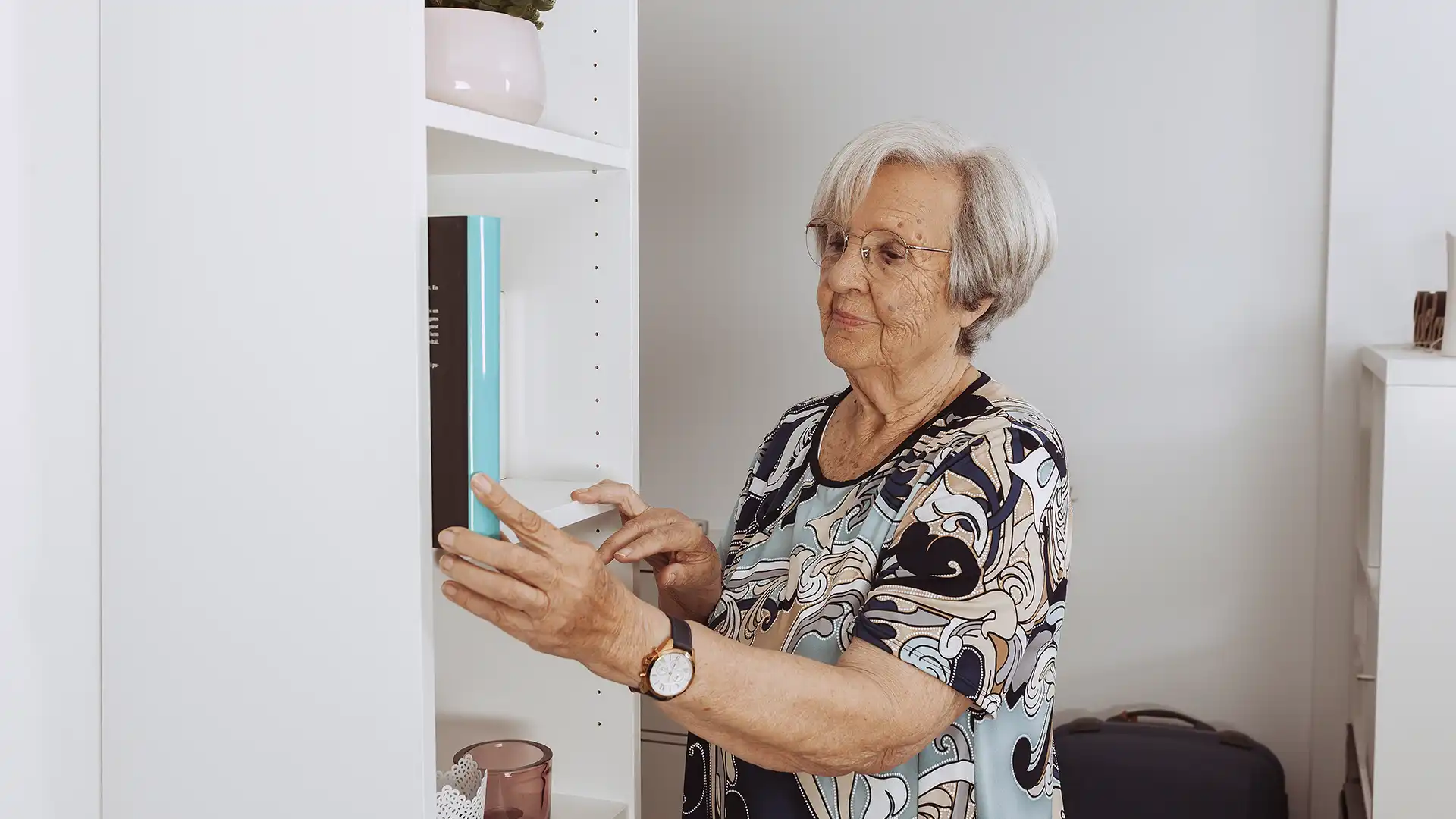If you are living with misophonia, you are not alone. Millions of people suffer from this condition, which can profoundly affect their daily life. This article will provide an understanding of misophonia, its causes and symptoms, and effective strategies to cope with the disorder so that you can regain control over your life. We will explore misophonia, its effect on your life, and how hypnosis and hypnotherapy can help you overcome it, as well as other coping strategies that may be beneficial. With the right knowledge and support, you can begin to manage misophonia’s effects on your daily life so that you can live a happier, healthier life.
Understanding Misophonia and Its Effects on Your Life
Misophonia is a condition in which certain sounds trigger intense negative emotions such as anxiety or anger. These sounds may be specific to an individual but typically involve repetitive noises like chewing, tapping, clicking, humming, sniffing, and other mouth/nose related noises. People with misophonia often find these sounds unbearable and can become agitated or enraged when exposed to them. Furthermore, misophonia may cause feelings of isolation due to difficulty functioning normally when surrounded by misophonia triggers. The negative emotions associated with misophonia can severely impact your daily life and make it difficult to interact with people in social situations.
Misophonia can also significantly affect your mental health and wellbeing, as it can lead to feelings of embarrassment, shame and isolation. In extreme cases, misophonia can lead to depression or anxiety, as well as difficulty concentrating or sleeping. If left untreated, misophonia could further impact your physical health due to the amount of stress and tension it can cause. It is important to understand misophonia and the effects it has on your life so that you can take steps to manage it effectively.
Managing misophonia
The good news is that misophonia can be managed with the right strategy. One way to manage misophonia is through hypnosis and hypnotherapy. Hypnosis is a state of trance-like relaxation in which you are more open to suggestions and access your subconscious mind. You can re-frame misophonia triggers through hypnosis and learn to cope better with misophonic experiences. Hypnotherapy can help you develop strategies to reduce misophonic reactions and provide emotional support in managing misophonic episodes.
Another way to manage misophonia is through self-care and coping strategies. These may include lifestyle changes such as avoiding misophonia triggers and reducing stress levels and relaxation techniques like deep breathing and mindfulness. Other coping strategies include desensitising misophonic reactions by slowly introducing misophonia triggers in a safe, controlled environment. It is important to experiment with different strategies to find out what works best for you.
Definition of misophonia
Misophonia is a condition characterised by intense negative emotions in response to specific sounds. While misophonia can vary in severity, it is typically characterised by an intense emotional reaction that may include anger, anxiety, or even rage. It is believed that misophonia can be caused by physiological and psychological factors, with individuals often having a heightened sensitivity to certain noises due to miswiring the brain’s auditory pathways.
Common misophonia symptoms
Common misophonia symptoms include feelings of rage, anxiety, or panic in response to specific sounds. These reactions may be sudden and extreme or can build up over time. People with misophonia may also experience physiological responses such as increased heart rate, sweating, nausea, or the inability to concentrate. Furthermore, misophonia can cause physical and cognitive impairments that make it difficult to interact with people in social situations.
It is important to recognise misophonia symptoms so that you can take steps to manage the disorder. If misophonia affects your ability to function normally, speaking to a mental health professional for further advice and support may be helpful. Additionally, many misophonia-specific resources are available online that can provide information and support. With the right strategy, misophonia can be successfully managed.
How misophonia affects daily life
Misophonia can majorly affect your day-to-day life, making it difficult to concentrate and interact with people in social situations. You may find yourself avoiding activities involving misophonic triggers or becoming overwhelmed when exposed. In severe cases, misophonia can lead to social isolation and impaired functioning at work or school. It is important to recognise misophonia symptoms so that you can take steps to manage the disorder.
People with misophonia may experience feelings of anxiety or depression due to the constant fear of misophonic triggers. It is important to find ways to manage misophonia and create a safe space for yourself, such as limiting exposure to misophonic triggers or using relaxation techniques when exposed to them. Recognising how misophonia affects your mental health and wellbeing is also important. With the right strategy, misophonia can be managed, and you can enjoy life without fear of misophonic reactions.
.
Causes and Symptoms of Misophonia
The exact cause of misophonia is unknown. However, it is believed to be linked to miswiring in the brain’s auditory pathways. It is also thought that psychological or emotional factors, such as stress or trauma, can cause misophonia.
Common misophonia symptoms include feelings of rage, anxiety, or panic in response to specific sounds. These reactions may be sudden and extreme or can build up over time. People with misophonia may also experience physiological responses such as increased heart rate, sweating, nausea, or the inability to concentrate. Furthermore, misophonia can cause physical and cognitive impairments that make it difficult to interact with people in social situations.
Possible causes of misophonia
The exact cause of misophonia is unknown. However, it is believed to be linked to miswiring in the brain’s auditory pathways. It is also thought that psychological or emotional factors, such as stress or trauma, can cause misophonia. Other possible causes include excessive exposure to misophonic sounds, misophonic conditioning (associating misophonic stimuli with negative emotions), and genetic predisposition.
Whatever the cause of misophonia may be, it is important to recognise misophonia symptoms so that you can take steps to manage the disorder. If misophonia is affecting your ability to function normally, it may be helpful to speak to a mental health professional for further advice and support. Additionally, many misophonia-specific resources are available online that can provide information and support. With the right strategy, misophonia can be successfully managed.
Common misophonia symptoms
Common misophonia symptoms include feelings of rage, anxiety, or panic in response to specific sounds. These reactions may be sudden and extreme or can build up over time. People with misophonia may also experience physiological responses such as increased heart rate, sweating, nausea, or the inability to concentrate. Furthermore, misophonia can cause physical and cognitive impairments that make it difficult to interact with people in social situations.
It is important to recognise misophonia symptoms so that you can take steps to manage the disorder. Other misophonia symptoms may include avoidance or escape behaviours (such as leaving a room when misophonic sounds arise), difficulty concentrating, problems sleeping, and irritability. It is important to note that misophonia can be a chronic condition, and it is important to recognise the signs so that an effective misophonia treatment plan can be put in place.
Overcoming Misophonia With Hypnosis & Hypnotherapy
Hypnosis and hypnotherapy are increasingly being used as treatments for misophonia. Through these techniques, it is possible to reduce misophonic reactions by rewiring the brain’s miswired auditory pathways. By “reprogramming” the misophonic triggers and calming the misophonic response, hypnosis and hypnotherapy can help to reduce misophonia-related anxiety levels.
Hypnosis and hypnotherapy are also useful for helping people manage misophonia by teaching them techniques such as progressive relaxation, mindfulness meditation, or self-hypnosis. With these techniques, misophonic reactions can be relaxed, allowing misophonia sufferers to manage their misophonic triggers better and reduce misophonia related anxiety.
By teaching misophonia sufferers how to cope with the disorder, hypnosis and hypnotherapy can help them lead more fulfilling lives free from misophonia’s debilitating effects. With the right treatment plan, misophonia can be managed so that individuals can live a life free of misophonic triggers and their associated stress.
What hypnosis and hypnotherapy are
Hypnosis is a therapeutic technique in which clinicians help patients focus on specific thoughts or ideas. This allows the patient to enter a trance-like state, helping them to access their subconscious mind better and uncover unconscious motivations and beliefs. Hypnotherapy, on the other hand, is used by hypnotherapists to bring about positive changes in the patient’s behaviour or habits. Hypnosis and hypnotherapy can be used together to help misophonia sufferers better manage their misophonic triggers and reduce misophonia-related anxiety levels.
It is important to note that hypnosis and hypnotherapy should only be used under the guidance of a qualified clinician. A misophonia treatment plan should be tailored to individual needs and preferences in order to ensure the most successful outcome. By working with a trained hypnotherapist, misophonia sufferers can learn techniques that will help them reduce misophonic reactions and lead more fulfilling lives free from misophonia’s debilitating effects.
Benefits of using hypnosis and hypnotherapy to treat misophonia
Hypnosis and hypnotherapy can be beneficial for misophonia sufferers in a variety of ways. First, these techniques can help those with misophonia better manage their misophonic triggers by calming their anxiety levels. Hypnosis and hypnotherapy can also help misophonia sufferers better understand their misophonic triggers, allowing them to recognise when misophonic reactions are likely to occur. Finally, hypnosis and hypnotherapy can be useful for teaching misophonia sufferers how to cope with the disorder to reduce its effects on daily life.
By using hypnosis and hypnotherapy as a misophonia treatment plan, misophonia sufferers can lead more fulfilling lives free from misophonic triggers and their associated stress. With the help of a trained hypnotherapist, misophonia sufferers can learn techniques that will help them reduce misophonic reactions and lead more fulfilling lives free from misophonia’s debilitating effects. With the right treatment plan in place, misophonia sufferers can gain control over their disorder and finally have the peace of mind they deserve.
Exploring Other Coping Strategies for People with Misophonia
In addition to hypnosis and hypnotherapy, misophonia sufferers can explore other coping strategies to help them better manage the disorder. Cognitive Behavioral Therapy (CBT) is a type of therapy that helps people to identify and change negative thought patterns which may be contributing to misophonic reactions. Additionally, misophonia sufferers can use mindfulness and meditation techniques to help reduce stress and anxiety levels that may be associated with misophonic triggers.
Another option for misophonia patients is to look into support groups or online communities specifically created for misophonia sufferers. Participating in these types of support networks can allow misophonia sufferers to talk about their experiences and connect with other individuals who are dealing with similar issues.
In addition, misophonia sufferers should consider working with a mental health professional such as a psychotherapist or clinical hypnotherapist, to develop an effective treatment plan for misophonia. With the help of a trained mental health professional, misophonia sufferers can gain insight into their misophonic triggers and how to best cope with them.
Finally, misophonia sufferers should take the time to practice self-care in order to reduce the effects of misophonia on daily life. Taking part in activities that bring joy and relaxation, such as yoga, journaling, or listening to calming music, can be beneficial for misophonia sufferers in managing misophonic reactions.
By exploring these different coping strategies and working with a mental health professional, misophonia sufferers can gain control over their disorder and finally have the peace of mind they deserve.
Relaxation techniques
Relaxation techniques such as progressive muscle relaxation, deep breathing, and guided imagery can benefit misophonia sufferers. These techniques are designed to help misophonia sufferers reduce stress and anxiety levels associated with misophonic triggers. Progressive muscle relaxation involves tensing and relaxing specific groups of muscles throughout the body to help misophonia sufferers relax and reduce misophonic reactions. Deep breathing is another relaxation technique that can be used to calm misophonia sufferers during misophonic episodes. Finally, guided imagery involves focusing on positive images or scenarios that can bring a sense of peace and relaxation for misophonia sufferers.
By using relaxation techniques, misophonia sufferers can reduce misophonic reactions and gain more control over their disorder. Additionally, these techniques can be used in combination with other misophonia treatments, such as hypnotherapy or cognitive behavioural therapy, to help misophonia sufferers manage their misophonic triggers more effectively. Ultimately, misophonia sufferers can use relaxation techniques to reduce misophonic reactions and lead more fulfilling lives.
Dietary Changes
In addition to exploring other coping strategies, misophonia sufferers may find that making dietary changes can help reduce misophonic reactions. For example, avoiding certain foods such as sugar or caffeine, which can worsen anxiety levels, can be beneficial for misophonia sufferers. Additionally, misophonia sufferers should consider reducing their intake of processed and junk foods, which can add to misophonic reactions. Finally, misophonia sufferers should focus on incorporating more nutrient-dense foods such as fruits, vegetables, lean proteins, and whole grains into their diet to support healthy misophony levels.
By making the necessary dietary changes, misophonia sufferers can reduce misophonic reactions and gain more control over their disorder. Additionally, misophonia sufferers who take the time to focus on nutritional health will likely see improvements in their mental and physical wellbeing which can be beneficial for reducing misophony levels. Ultimately, misophonia sufferers should consider making dietary changes in order to manage misophonic triggers more effectively.
Cognitive Behavioral Therapy (CBT)
Cognitive behavioural therapy (CBT) is an evidence-based form of psychotherapy that has been found to be effective in treating misophonia. This type of therapy focuses on helping misophonia sufferers recognise, challenge and restructure their misophonic thoughts, feelings and behaviours. Through this process, misophonia sufferers can reduce misophonic reactions and gain more control over their disorder.
Cognitive behavioural therapy in order to reduce misophony levels and lead a more fulfilling life. CBT can also be used in combination with other misophonia treatments, such as hypnosis or relaxation techniques, to help misophonia sufferers manage their misophony levels more effectively. Additionally, CBT can help misophonia sufferers gain insight into misophonic triggers and develop strategies for dealing with misophonic episodes. Misophonia sufferers would experience CBT treatment as part of the clinical session at Norwest Wellbeing.
Stress management and lifestyle changes
Stress management and lifestyle changes may also help misophonia sufferers reduce misophonic reactions. For instance, misophonia sufferers should try to limit the amount of stress in their lives by engaging in activities such as yoga or meditation, which can help relax the body and mind. Additionally, misophonia sufferers should focus on establishing healthy sleep habits in order to support misophony levels. Establishing regular sleep routines, such as going to bed at the same time each night and limiting caffeine intake, can positively affect misophonic reactions.
Misophonia sufferers should also take time to engage in activities that they enjoy, as this can help reduce misophonic reactions. Finally, misophonia sufferers should consider seeking out supportive networks of family and friends, which can benefit misophony levels. By making the necessary lifestyle changes, misophonia sufferers can gain more control over misophonic triggers and lead a more fulfilling life.
How Misophonia Affects Your Life and What You Can Do About It
Misophonia is a condition where certain sounds trigger intense negative emotions such as anxiety or anger. Common misophonia triggers may include sounds like chewing, tapping, nail-biting and sniffling. The reactions to these triggers can vary, from a feeling of mild annoyance to an emotional outburst. Misophonia can have a huge impact on your life, but there are strategies that you can use to help cope with the disorder.
Misophonia often leads to avoidance behaviours and strained relationships as sufferers try to minimise their exposure to misophonic triggers. It can also lead to social isolation as misophonia sufferers may become increasingly uncomfortable in public or social situations.
Understanding the Causes and Symptoms of Misophonia
Although the exact cause of misophonia is still unknown, there are some theories about what may be involved in its development. It is believed that an over-sensitivity causes misophonia to certain sounds or sensory input. This may be due to a miswiring in the brain or even genetic factors.
Common misophonia symptoms may include an intense emotional reaction to misophonic triggers, physical changes such as increased heart rate or sweating, negative thoughts and avoidance behaviours. It is important to note that misophonia can manifest differently for each person. Some may experience a mild annoyance, while others react with anger or distress.
It’s also important to remember that misophonia can often be misdiagnosed, so it’s important to speak with a healthcare provider if you believe you may have misophonia. A proper diagnosis is the best way to ensure that misophonia does not interfere with your daily life.
Overcoming Misophonia Through Hypnosis & Hypnotherapy
Hypnosis and hypnotherapy can be effective tools for helping misophonia sufferers cope with the disorder. Hypnosis is a trance-like state that allows a person to access increased focus, relaxation and suggestibility. During hypnosis, a trained practitioner can help misophonia sufferers identify their triggers and manage their reactions to them.
Hypnotherapy, on the other hand, is an advanced form of hypnosis that combines counselling and psychotherapeutic techniques with guided imagery and suggestion. The goal of hypnotherapy is to help misophonia sufferers become more aware of their reactions to misophonic triggers so that they can learn how to manage their responses and reduce the impact misophonia has on their lives.
Both hypnosis and hypnotherapy can be incredibly beneficial for misophonia sufferers, allowing them to gain control over their reactions to misophonic triggers and gain a healthier outlook on life. However, it is important to speak with a certified practitioner before undergoing hypnosis or hypnotherapy to make sure that it is the best course of action for you.
Exploring Effective Coping Strategies for People with Misophonia
Relaxation techniques, cognitive-behavioral therapy (CBT), stress management, hypnosis and lifestyle changes are all effective strategies for misophonia sufferers to help cope with the disorder. Relaxation techniques such as deep breathing, guided imagery or progressive muscle relaxation can help misophonia sufferers reduce their response to misophonic triggers by calming the body and mind.
CBT can help misophonia sufferers learn new ways of thinking and reacting to misophonic triggers, reducing their level of distress. Stress management techniques such as meditation, yoga or mindfulness can also help manage misophonia symptoms.
Lifestyle changes such as avoiding misophonic triggers, managing time and setting boundaries can also be incredibly beneficial in helping misophonia sufferers cope with the disorder. By reducing misophonic triggers and managing stress levels, misophonia sufferers can gain a greater sense of control over their lives.
Misophonia is a complex disorder that affects millions of people around the world. With the right help and support, misophonia does not have to be something that takes away from living a happy and fulfilled life. By exploring misophonia symptoms, causes and treatments, as well as effective coping strategies, misophonia sufferers can gain a greater sense of control over their lives and reduce the impact misophonia has on them.
In summary, misophonia is a debilitating disorder that is characterised by intense negative emotions triggered by certain sounds. Common misophonic triggers include chewing, crunching, tapping and loud talking. Misophonia can have a detrimental effect on the quality of life and can even lead to depression in some cases. Fortunately, several treatments and coping mechanisms available can help misophonia sufferers gain more control over misophonic triggers.
These treatments and strategies include cognitive behavioural therapy, hypnosis and hypnotherapy, nutritional changes, stress management, and lifestyle modifications. By utilising these approaches, misophonia sufferers can reduce misophonic reactions and lead a more fulfilling life. Ultimately, misophonia sufferers should consider exploring these treatments in order to reduce misophony levels and lead a more fulfilling life.
In conclusion, misophonia is a serious mental health condition that can devastate those suffering from it. Fortunately, various treatments and coping strategies are available that misophonia sufferers can use to reduce misophonic reactions and lead a more fulfilling life. Cognitive behavioural therapy, hypnosis and hypnotherapy, nutritional changes, stress management, and lifestyle modifications are all potential approaches that misophonia sufferers should consider exploring to reduce misophony levels. With the right treatments and coping strategies, misophonia sufferers can gain more control over misophonic triggers and lead a more fulfilling life.
Misophonia is a complex disorder that can significantly affect the daily lives of those affected. While misophonia cannot be cured, there are treatments and coping strategies that can help misophonia sufferers manage their symptoms and lead happier healthier lives. Hypnosis and hypnotherapy offer misophonia patients a fast, effective way to gain control over misophonic triggers and reactions. Additionally, relaxation techniques, cognitive-behavioral therapy (CBT), stress management and lifestyle changes can provide misophonia sufferers with the tools they need to cope with their symptoms and lead happier lives. With the right help and support, misophonia does not have to be something that takes away from living a happy and fulfilled life.
If you or someone you know suffers from misophonia, it is important to seek help and support from a qualified clinical professional. With the right treatment, misophonia sufferers can learn how to manage their symptoms and lead happier lives.
If you still feel unsure or have further questions, please get in touch with Norwest Wellbeing. Together, you can create a plan for managing misophonia symptoms and work towards leading a full and rewarding life.
References:
1. Misophonia International: Treatments for misophonia. https://www.misophoniainternational.org/treatment-for-misophonia
2. Mayo Clinic Staff (2021). Hypnosis: Overview. https://www.mayoclinic.org/tests-procedures/hypnosis/about/pac-20384503
3. National Health Service (NHS). Cognitive Behavioral Therapy (CBT): How it works. https://www.nhs.uk/conditions/cognitive-behavioural-therapy-cbt/how-it-works/
4. Stress Management Society (2020). How to use stress management techniques. https://www.stress.org.uk/how-to-use-stress-management-techniques/
5. National Institute of Mental Health (2020). Coping with misophonia: Tips and strategies for managing misophonic triggers and emotional reactions. https://www.nimh.nih.gov/health/publications/coping-with-misophonia-tips-and-strategies-for-managing-misophonic-triggers-and.shtml
If you or someone you know suffers from misophonia, don’t hesitate to reach out for help. Paul Smith from Norwest Wellbeing is a highly experienced misophonia specialist and clinical hypnotherapist who can offer individualised treatment plans to those living with misophonia. With Paul’s specialised approach, misophonia sufferers can learn how to manage their misophonia symptoms and lead happier lives. Contact Paul Smith today at Norwest Wellbeing for the support and guidance you need to take control of misophonia and make the most out of life.



















